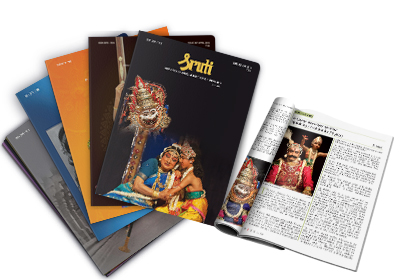
Vijay Tendulkar, the eminent dramatist, was born in Kolhapur in 1928. A journalist to start with he wrote 28 full-length plays and one novel, seven collections of one-act drama, six children`s plays, four short stories, and three essays. Each of his major plays revolved around some contemporary idea, event, or issue that deeply affected him. He weaned Marathi theatre away from sentimentalism, overwriting, and drawing-room themes.
In his first successfully staged work, Shrimant (1955), Tendulkar adhered to the form of the well-made drama, but departed from its conventional thematic concerns. He declared war against the dominant trend of the noble, idealized hero whose story was designed to draw easy tears and applause. His next play, Manus Navache Bet (1956) constituted a total rejection of the sentimental tradition. Tendulkar`s ironic treatment of his characters’ travails struck some critics as a misplaced urge to evoke laughter when karuna rasa needed attention.
Shantata! Court Chalu Ahe first directed for the stage by Jabbar Patel in 1967 was filmed by Satyadev Dubey in 1971. Translated into many Indian languages, the play dealt through the device of a play within a play with the latent human cruelty against the vulnerable. Gidhade (1970) showed man`s bestiality in its most savage shape. In Sakharam Binder (1972) the eponymous anti-hero brings home destitute women to serve him in return for food, clothes, and shelter. This was a veritable bomb dropped on the most cherished of social institutions, marriage. In Ghashiram Kotwal, Tendulkar responded to the disturbing rise of the Shiv Sena party aided and abetted by the ruling Congress party, by choosing for the first time a historical event and a form and musical treatment inspired by folk theatre, to create an allegory. Gidhade, Sakharam Binder, and Ghashiram Kotwal set off storms of protest. Their producers and directors fought battles against the censors, the law, and the public to ensure the required permissions for performance. Kanyadan in 1983 brought criticism from Tendulkar`s own constituency of liberals. In it a Brahmin`s daughter chooses to marry a Dalit who beats her up regularly. Tendulkar`s other important plays include Chimnyancha Ghar Hota Menacha (1959), Mi Jinkalo Mi Haralo (1963), Kawlyanchi Shala (1963), Dambadwipcha Mukabla (1969), Ashi Pakhareyeti (1970), Pahije Jatiche (1976), Mitrachi Goshta (1981), and Kamala (1981).
Tendulkar died in May 2008.


